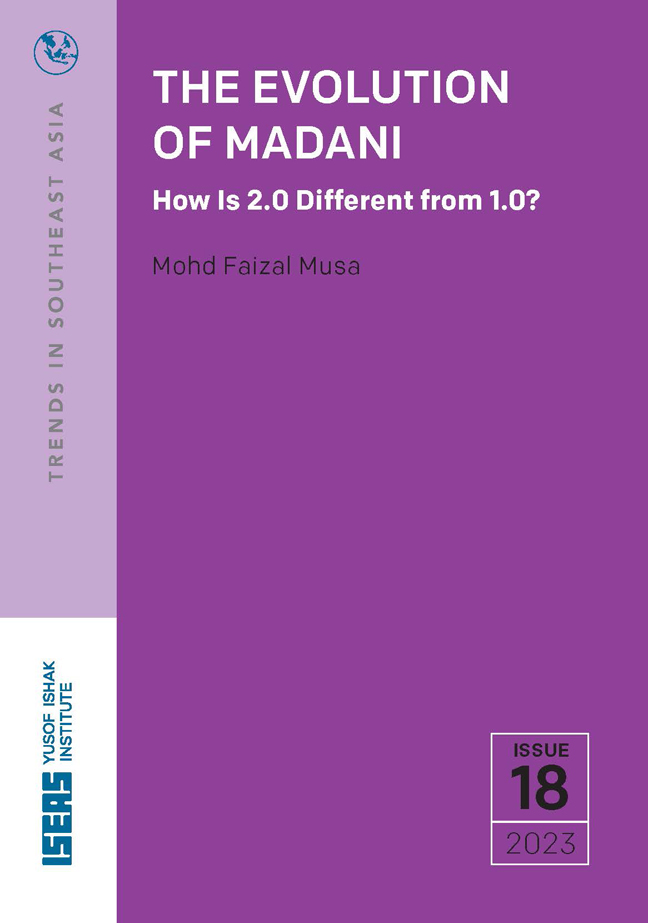The Evolution of Madani: How Is 2.0 Different from 1.0?
Published online by Cambridge University Press: 26 March 2024
Summary
INTRODUCTION
The term “Madani” was introduced on 26 September 1995 by Anwar Ibrahim when he spoke of “Masyarakat Madani” (Madani Society) during the Istiqlal Festival, an Islamic cultural event held in Jakarta, Indonesia. In his speech entitled “Islam and the Establishment of Civil Society”, Anwar emphasized that Islam introduced humankind “to the ideals of social justice and the establishment of civil society that is a democratic civil society” (Anisma 2019, pp. 147–48). This was the core principle around which Anwar conceptualized Masyarakat Madani.
One of the key elements of Masyarakat Madani was the importance of freedom of thought. Anwar believed that “freedom of thought should definitely be a prerequisite to successfully deal with the challenges of globalization” (Anwar Ibrahim 1997, p. 8). However, despite the emphasis on freedom of thought, and in the mould of his mentor Syed Muhammad Naquib Al-Attas, he emphasized that “we do not need to be secular in order to succeed” (ibid., pp. 8–9). From his perspective, secularism—which focused on more worldly matters such as freedom of thought—should not overpower the spiritual aspect of life, which Madani would provide.
Another key element was Islam’s emphasis on social justice. Anwar emphasized that “Islam was the first to introduce the ideal of social justice and the development of Masyarakat Madani or a democratic civil society” (ibid., p. 9). However, he reminded the audience that despite the arrival of Islam, the Malay rulers and religious authorities continued to neglect and violate the rights of individuals. This was well documented by Abdullah Munshi in his writings and by Sejarah Melayu (ibid., p. 10). The purpose of Madani as a moral principle was, therefore, to ensure citizen rights and transparency, and prevent corruption, extremism, terrorism, poverty, injustice, intellectual depletion, social depravity, wealth inequality and authoritarianism. To achieve this, the ummah had to examine their own internal conscience before achieving outward justice (ibid., pp. 10–11).
Finally, Anwar stressed that moderation and pragmatism were important criteria for achieving Madani. Aided by modern democracy and Fiqh Awlawiyyat, these two criteria would inculcate in the ummah the values of tolerance, multiculturalism, and reciprocity (ibid., p. 12). In summary, Anwar stated that the core values of Masyarakat Madani were morality, justice, equality and dialogue (ibid., p. 13).
- Type
- Chapter
- Information
- The Evolution of MadaniHow Is 2.0 Different from 1.0?, pp. 1 - 40Publisher: ISEAS–Yusof Ishak InstitutePrint publication year: 2023

